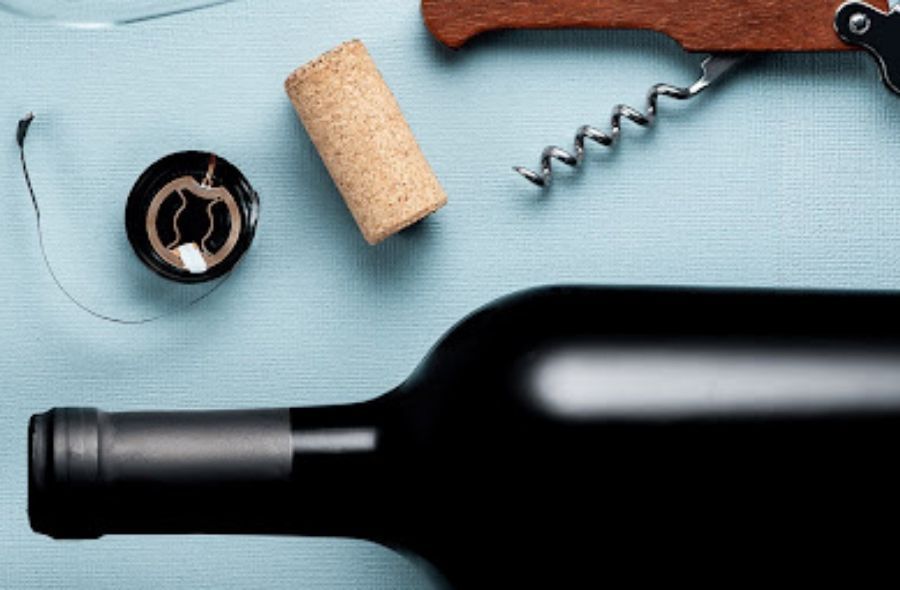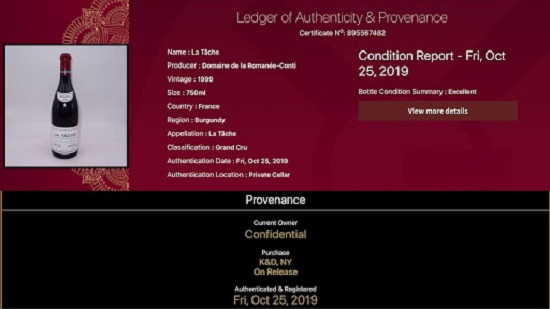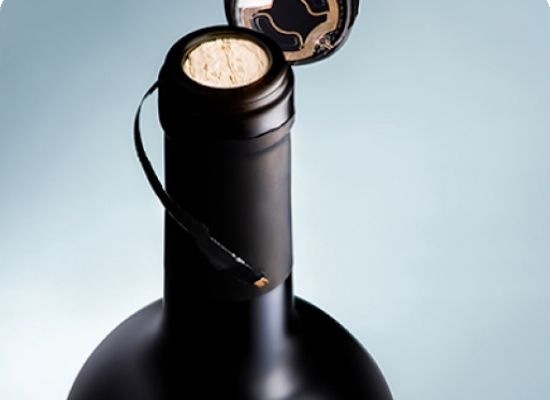May, 2024
San Francisco, USA

A billion-dollar industry, blockchain has been a game-changer when it comes to traceability in the supply chains of wines, spirits, and several other consumer products. Blockchain has been simply defined as a digital ledger. When a transaction occurs, it is recorded in a participant’s ledger, or blocked in the chain, across a network of computer systems. The decentralized recording of the transactions makes it difficult for individual parties to manipulate the results. According to an IBM study, 71% of the consumers stated that traceability is important and they are willing to pay a premium for brands that provide it. Thus, a producer registering their wine in the blockchain not only enhances their anti-counterfeit systems but also provides supply chain traceability to buyers which allows them to understand the true story of the wine they are drinking. For bigger producers like Chateau Petrus, blockchain technology provides counterfeit prevention and quality control which helps in building consumer trust.
[[relatedPurchasesItems-35]]
Blockchain can be incorporated into the supply chain of your wine through various technologies and can be used in many ways. Radio Frequency Identification (RFID) that allows information tracking through sensors, Quick Response (QR) Code which can be scanned from the wine label to acquire information, Near-field Communication (NFC) that enables communications between devices, etc. are some of the examples. You can read more about Blockchain and Wine Fraud here. With the success of digital solutions and the megatrend of digitization, blockchain has been beneficial in improving business outcomes, especially in the wine industry. For winemakers, blockchain has been a timely innovation that underscores the values of trust in any transaction. Thus, several companies across the world are leveraging technology and offering blockchain solutions to wine producers to offer value to their consumers.
Helmed by the famous wine and spirits fraud expert, Maureen Downey, Chai Vault is an anti-fraud solution that caters specifically to the wine and spirits industry. It offers a blockchain-based solution that allows the buyers of wines and spirits to discern the authenticity and provenance (place of origin) of the wine and spirits bottles before purchasing them.
It has a registered method known as The Chai Method (TCM) that has listed certified authenticators that allow you to inspect and certify the authenticity of the bottles in blockchain across the globe and create a permanent and digital record. The secure authenticity is achieved through the detailed notes and photos, the bottle's unique ID, or thumbprint that are inputted at the time of production. The bottles are certified with the presence of the online Ledger of Authenticity and Provenance that exists in the blockchain. It also updates the ownership transfer when the bottle is sold to someone, the provenance information can be updated and stored in the blockchain.

Certificate of Authenticity and Provenance by Chai Vault; Image Source - Chai Vault
A digital transparency-based company, Everledger provides technology solutions to increase transparency in the supply chains globally. It enables producers, buyers, manufacturers, and retailers to evidence the origin, ownership, and characteristics of their products. The Everledger platform operates on a private blockchain network with alerted speed and capability where the details about the products and the associated processing events can be easily added.
Everledger has collaborated with Avery Dennison, an innovative packaging material company. They have combined Avery’s intelligent label solution with their blockchain-based platform to provide authenticated provenance tracking of wines from grape to bottle. This enables consumers to discover the lifetime journey of the wine they are drinking and gives them confidence in its authenticity, thus connecting them with the brand story. Another initiative is their NFC-powered tamper detection label that ensures that the physical state and digital identity of the wine or spirit are the same. These labels stick to the bottle cap or other NFC devices like plastic heat-shrink capsules or cork tags, etc. With each anti-tamper device stuck to the bottle, the chain-of-custody data is captured all along the supply chain with the help of blockchain technology.

NFC Anti-Tamper Capsule by Everledger; Image Source - Everledger
An eProvenance asset, VinAssure creates a wine industry ecosystem that optimizes traceability, efficiency, and profitability across the wine supply chain. It was developed to resolve the wine supply chain issues and enhance the opportunities through a collaborative network. It is a blockchain solution that connects participants across the wine supply chain through a permissioned, permanent, and shared record of data. It helps in improving transparency from grape to glass and drives down the logistics costs.
This VinAssure network eventually allows members and consumers to access information spanning from the vineyard through transport and delivery which is validated and stored on the blockchain.

Vinsent App; Image Source - Vinsent
Founded in 2018 by Jacob Ner-David, Gil Picovsky, and Ron Prashker, it was formerly known as Vin-X. Vinsent is a fast-growing Israeli blockchain technology startup that offers its consumers a library of fine wines from France, Spain, Italy, and the US. The main purpose of this app is to utilize the latest blockchain technology to secure wine trading and tackle the issue of fraud in this industry. It offers exclusive pricing and early access to the wines with a blockchain-based trading platform that allows wine lovers to exchange their recent purchases.
An Australian-based company, Cellr tackles the fake wine market by embedding NFC and RFID chips in bottle caps. Once the consumers, scan the Cellr enabled bottle caps with their smartphones, they can check every information about the wine and spirits bottle. Their tech-enabled software provides unprecedented visibility from the bottling line to the consumer.
Video Source - Cellr
Cellr offers brand protection to its consumers through the latest packing technology that helps the producers and consumers in identifying and authenticating legitimate products in the market. The real-time information allows buyers to authenticate bottles in real-time with their phones. The tamper-proof bottle lids provide an impervious defense against fraud to avoid counterfeit bottles. Cellr’s technology creates abiding digital records of each bottle that are directly integrated with a blockchain solution for an additional layer of security. This offers complete authentication through seamless brand protection and protects the brand’s heritage.
The Track and Trace feature of Cellr offers the brands and buyers to globally track their products from production through to consumption with the latest digital packaging technology. It provides a clear line of sight to brands over their global supply chain and the visual data presents every unique interaction with a product on a global map. The authentication technology provides proof of provenance to consumers and retailers. Track and Trace paint a clear picture of the product’s journey while allowing the consumer to directly connect to the supply chain and unlock new logistics, sales, and marketing insights.
With technology taking over, these companies are trying their best to leverage blockchain technology and eradicate fraud in the wine and spirits industry. However, scammers continue to find ways to use technology to their advantage even with the high-end technology to curb fraud in the global food and beverage industry. Despite this, blockchain technology provides great opportunities to fight counterfeits in the alcohol industry.
Article by Shreya Kohli, Beverage Trade Network
Header Image Source - Everledger